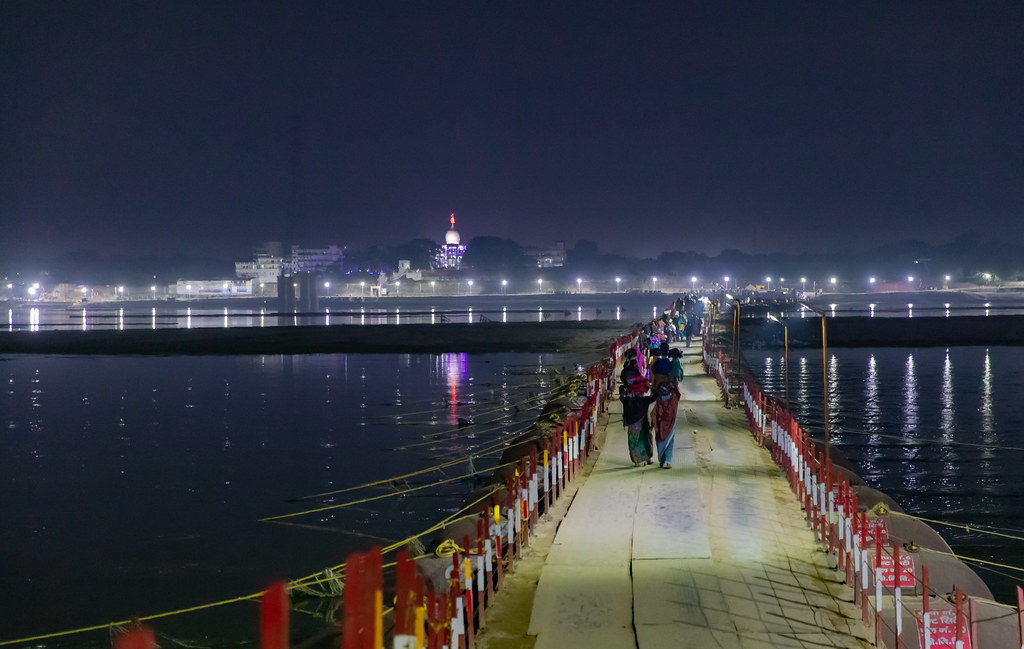The Maha Kumbh Mela 2025 brought millions of pilgrims together in Prayagraj to partake in one of the most spiritually significant events on Earth. But behind the collective devotion, another reality stood tall—the environmental impact of hosting such a massive gathering.
At Gaon Dekho, we believe spiritual journeys should not come at the cost of environmental degradation. Through KumbhStays, we introduced sustainability practices that honored both faith and the planet—offering pilgrims a cleaner, greener, and more responsible way to experience the sacred.
Sustainability in Religious Tourism: Why It Matters
Large-scale religious events often lead to enormous resource consumption, plastic waste, overcrowding, and pressure on local infrastructure. From disposable items to food packaging, the environmental footprint of such gatherings is significant.
In sacred spaces like Prayagraj, where spirituality is deeply tied to nature—the river, the soil, the air—there’s a deeper responsibility to ensure that these elements are preserved, not polluted.
Sustainable religious tourism is no longer an ideal—it is a necessity. It is about creating experiences that are spiritually enriching while being environmentally respectful. That’s where KumbhStays set a new benchmark.
What We Did at KumbhStays
Our approach to sustainability was practical, community-driven, and woven into the entire guest experience. Here’s how we incorporated eco-conscious choices at every level of our operations:
Eco-Friendly Toiletry Kits
Each guest at our tent stays received a thoughtfully curated eco-toiletry kit. These included:
- Biodegradable toothbrushes
- Herbal soaps made by local women’s groups
- Paper packaging to replace single-use plastics
These small touches ensured that personal care didn’t come at the environment’s expense.
Waste Management and Reduced Plastic Use
We partnered with local suppliers and property owners to encourage:
- The use of reusable utensils and crockery
- Reduction of single-use plastic water bottles by providing safe refilling stations
- Proper waste segregation at tent sites
This not only helped reduce landfill impact but also educated both hosts and travelers about conscious consumption.
Local Sourcing and Community Engagement
All materials—tents, furniture, toiletries, and even snacks—were sourced locally, boosting the rural economy and cutting down on transport-related emissions. By involving local vendors and artisans, we created a supply chain that was both low-impact and community-positive.
Conscious Hospitality
Our team guided hosts to adopt simple but impactful practices such as:
- Solar lanterns in common areas
- Low-energy lighting
- Water conservation methods during peak usage days
Every element of the guest stay was reviewed for environmental impact and improved wherever possible.
A Roadmap for Future Eco-Pilgrimages
Our efforts at the Kumbh were just the beginning. Here’s how we envision the future of sustainable spiritual travel in India:
Designing Eco-Stay Models
We aim to replicate and refine the KumbhStays model across future events and rural destinations, focusing on:
- Zero-waste accommodation setups
- Renewable energy sources for common areas
- Sustainable sanitation practices
Educating Travelers
We believe awareness is key. Future Gaon Dekho experiences will include:
- Briefings on responsible travel practices
- Options for travelers to offset their carbon footprint
- Interactive sessions with local eco-entrepreneurs
Building Green Communities
As we expand across India, we’re committed to building a network of eco-conscious hosts. We’ll continue to train and support rural property owners in sustainable hospitality, equipping them with tools and knowledge to host in harmony with nature.


0 Comment